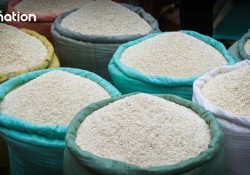
Thai Exporters Urge Urgent Action to Protect Economy
Thanakorn Kasetsuwan, Chairman of the Thai National Shippers’ Council (TNSC), expressed concerns about the 36% US tariff imposed on Thai goods, which is higher than expected. This comes as Vietnam managed to negotiate a 20% tariff, and Malaysia secured a 25% tariff, putting Thailand at a disadvantage compared to these competitors. If Thailand fails to resolve the issue by August 1, products shipped to the US will face the 36% tariff.
Thanakorn warned that this tariff increase would lead to higher export costs, making Thai products less competitive in the US market, which is worth over 2 trillion baht, or 20% of Thailand’s total exports. Key sectors likely to be hit hardest include electronics, processed food, rice, rubber and rubber products, and consumer goods.
Furthermore, industries with high labour intensity may face significant job losses, and several agricultural products will struggle to remain competitive. This could place pressure on domestic prices and affect the income of Thai farmers and households.
“Thailand must secure a deal, or at least reach a 20% tariff deal similar to Vietnam. Otherwise, the impact will be massive, affecting 2 trillion baht of exports to the US, as well as manufacturing, and foreign investments will decrease significantly. Investors will shift production to countries with lower tariffs than Thailand, causing economic stagnation and long-term competitiveness issues,” said Thanakorn.
He further stated that if the 36% tariff remains in place, Thai exports will see no growth in the second half of the year and may grow only 1% for the entire year, instead of the previously expected 1–3% growth.
He urged the Thai government’s negotiation team to act quickly, as 3 weeks remain until the August 1 deadline. Donald Trump has clearly stated that there will be no extensions, making it crucial for Thailand’s negotiating team to finalise the deal promptly.
Thailand Could Face 5-10 Years to Recover if US Tariffs Remain at 36%
Kongrit Chantrik, Executive Director of the TNSC, has warned that if the US maintains its 36% tariff on Thai goods, the Thai economy could take 5 to 10 years to recover. He explained that Thailand’s exports to the US, which are worth over 2 trillion baht, could face severe setbacks, impacting sectors like electronics, agricultural products, and consumer goods.

The US tariff is significantly higher than those imposed on competitors like Vietnam (20%) and Malaysia (25%). Kongrit emphasised that Thailand cannot afford to lose this market, and if the issue remains unresolved by 1 August 2025, the impact will be detrimental to export growth in the latter half of the year.
To mitigate these risks, the TNSC has proposed the following urgent measures to Deputy Prime Minister and Finance Minister Pichai Chunhavajira.
1. Negotiate tariff reductions with the US:
- Aim to reduce US tariffs on Thai goods to 0%, particularly on items Thailand can accept.
- Extend investment incentives for direct foreign investment (FDI) from the US.
- Increase energy imports from the US, replacing supplies from other sources.
2. Explore alternative markets to compensate for lost US exports:
- Support trade promotion activities in 2025–2026, both overseas (e.g. trade fairs, business matching events) and within Thailand (e.g. Incoming Missions).
- Increase funding for SMEs Proactive to help SMEs penetrate new markets, particularly in sectors where the government cannot support them at trade exhibitions.
- Partner with state-owned financial institutions like Export-Import Bank of Thailand and Small and Medium Enterprise Development Bank of Thailand to provide revolving funds and cover trade risk insurance costs for new markets.
- Expedite free trade agreement (FTA) negotiations and ensure existing agreements are fully leveraged for maximum benefit.
3. Additional measures to protect the domestic economy:
- Review cost reduction measures for affected industries, including exchange rate management, to keep the baht competitive against major trading partners.
- Consider delaying the increase in minimum wages and reducing operational costs for businesses, such as electricity and fuel.
- Fast-track corporate tax refunds and strengthen regulations against non-compliant imports and goods that bypass tariffs.














